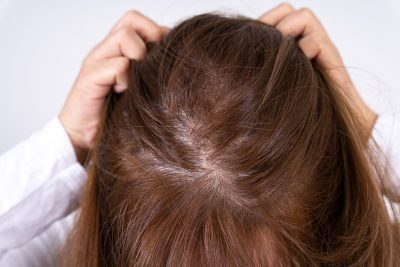Maintaining healthy hair is not solely about the products you use; it’s also influenced by various lifestyle factors. For residents of Dubai, where climate and lifestyle can be particularly demanding, understanding how these elements impact hair health is crucial. This article explores key lifestyle factors affecting Hair Loss Treatment in Dubai hair health and offers practical tips tailored for Dubai residents.
1. Climate and Environmental Factors
The Impact of Dubai's Climate
Dubai’s hot and arid climate can pose challenges to hair health. High temperatures and humidity can lead to dryness and damage, making hair more susceptible to breakage and frizz.
Tips to Combat Climate Effects
- Hydration: Drink plenty of water to keep your hair and scalp hydrated. Aim for at least 2-3 liters daily.
- Sun Protection: Wear a hat or use hair products containing UV protection when outdoors to shield your hair from harmful sun rays.
- Moisturizing Treatments: Incorporate hydrating hair masks or oils into your routine to combat dryness. Look for products with natural ingredients like argan oil or coconut oil.

2. Diet and Nutrition
The Role of Nutrition
A well-balanced diet plays a significant role in hair health. Nutritional deficiencies can lead to hair thinning and loss.
Key Nutrients for Healthy Hair
- Proteins: Hair is primarily made of protein (keratin), so include lean meats, fish, eggs, legumes, and nuts in your diet.
- Vitamins: Essential vitamins like A, C, D, E, and B-complex vitamins (especially biotin) support hair growth. Consume fruits, vegetables, and whole grains for a balanced intake.
- Minerals: Iron, zinc, and omega-3 fatty acids are vital for maintaining healthy hair. Foods like spinach, pumpkin seeds, fatty fish, and avocados can help meet these needs.
3. Stress Management
Stress and Hair Health
Chronic stress can lead to hair loss conditions like telogen effluvium, where hair follicles enter a resting phase and shed more than usual.
Effective Stress Management Techniques
- Mindfulness and Meditation: Practice mindfulness or meditation to reduce stress levels. Apps and local classes can help you get started.
- Regular Exercise: Engage in physical activities like yoga, swimming, or jogging to boost endorphins and reduce stress.
- Adequate Sleep: Aim for 7-8 hours of quality sleep each night to support overall health and hair growth.
4. Hair Care Routine
Importance of a Consistent Routine
A consistent hair care routine tailored to your hair type can greatly influence hair health. Overwashing or using harsh products can lead to dryness and damage.
Recommended Hair Care Practices
- Gentle Cleansing: Use sulfate-free shampoos and condition regularly to maintain moisture levels. Limit washing to 2-3 times a week.
- Avoid Heat Damage: Minimize the use of heat-styling tools. If you must use them, apply a heat protectant spray beforehand.
- Regular Trims: Schedule regular trims every 6-8 weeks to prevent split ends and promote healthy growth.
5. Hydration and Scalp Health
Importance of Scalp Care
A healthy scalp is the foundation for healthy hair. Neglecting scalp care can lead to issues like dandruff and hair thinning.
Tips for Scalp Health
- Scalp Massage: Incorporate scalp massages into your routine to stimulate blood circulation and promote hair growth.
- Exfoliation: Use a gentle scalp scrub or exfoliating treatment every few weeks to remove buildup and promote a healthy environment for hair growth.
- Hydration: Keep your scalp hydrated by using lightweight oils or scalp-specific moisturizers.
6. Avoiding Harmful Habits
Harmful Practices to Avoid
Certain habits can negatively impact hair health and should be minimized or eliminated.
Key Habits to Change
- Smoking: Smoking can reduce blood flow to the scalp and lead to hair thinning. Quitting can improve overall health and hair vitality.
- Excessive Alcohol Consumption: Limiting alcohol intake can help improve hair health, as excessive consumption can lead to dehydration and nutrient deficiencies.
- Over-processing Hair: Avoid frequent chemical treatments like bleaching, perming, or relaxing, as they can weaken hair and lead to breakage.
Conclusion
For Dubai residents, understanding the lifestyle factors that affect hair health is essential for maintaining vibrant, strong hair. By addressing climate challenges, prioritizing nutrition, managing stress, and adopting a consistent hair care routine, individuals can significantly improve their hair health. Implementing these tips will help you enjoy healthy, beautiful hair amidst the unique environmental and lifestyle challenges of living in Dubai.



















